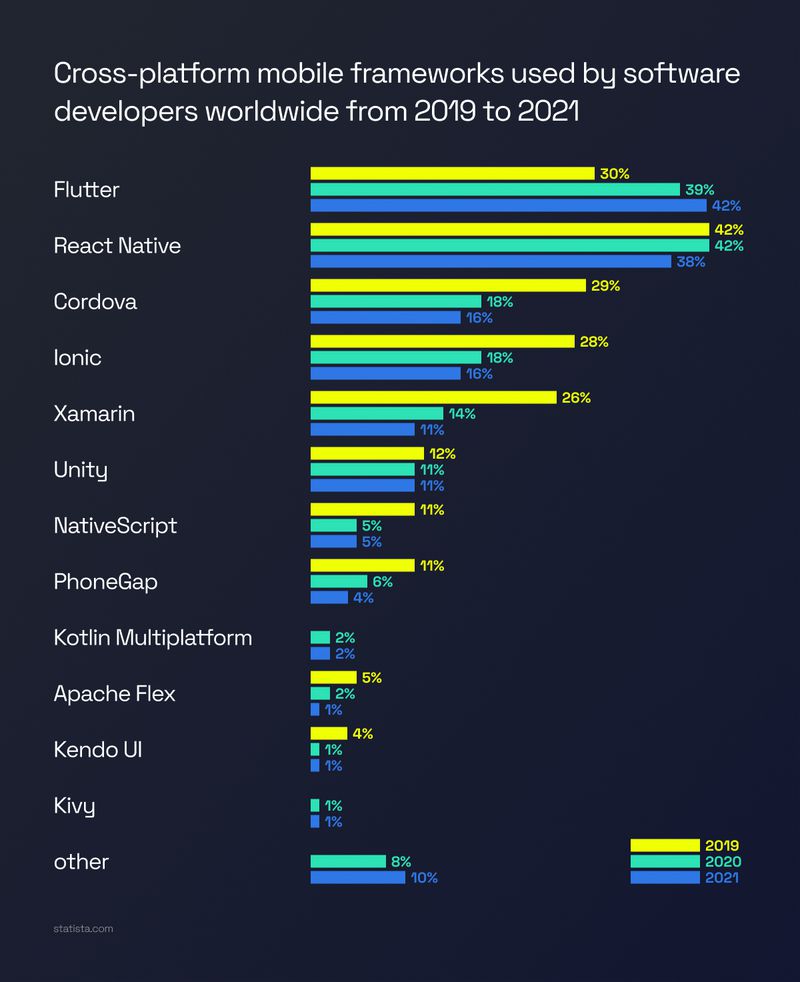React Native is a JavaScript-based framework that enables the simultaneous development of mobile apps for Android and iOS using the same codebase. It simply combines native platform possibilities with React framework, making it an excellent tool for building compelling UIs. Released by Facebook in 2015, it grew to become the top solution for mobile apps development in a few years. To show more up-to-date data, in 2021, as many as 16.5% of developers coded in React Native, which gives this technology 5th place in the popularity ranking (according to the Stack Overflow report).

React Native business advantages
A startup needs to get its product tested as soon as possible - you can't afford to come in second. With React Native, you can have your MVP quickly and for both iOS and Android simultaneously. And hence, it is possible to:
- shorten TTM - your product hits the market quickly, making your new startup brand recognizable,
- save time & money - iOS and Android at the same time mean less coding and much lower expenses.
What is more, the thriving React Native community backs its stability and draws more and more developers, which means they are out there and ready to work for you.
Technical benefits of React Native
A few essential tech solutions count for the perks of building apps with React Native. Let's take a look at three of many.
Thanks to that, the developers can simultaneously see the latest change in the code on the screen - here and now.
React Native has provided front-end developers with a tool to create production-ready mobile apps without web-based technology.
- Maximum re-use and revenue
The same code can be used for deployment on iOS and Android, which also makes for saving on resources.
The solid mobile performance provided by React Native makes it an excellent label for an app. We have chosen three examples of remarkable startup apps built with React Native. And yes, they are also business gems - tech excellence and competitiveness in perfect harmony. One inevitably comes up with the other.
Do you want to know more about the differences between building an app for both platforms or just for one? See our article: Mobile App Development: React Native (Hybrid) vs. Native iOS and Android.
